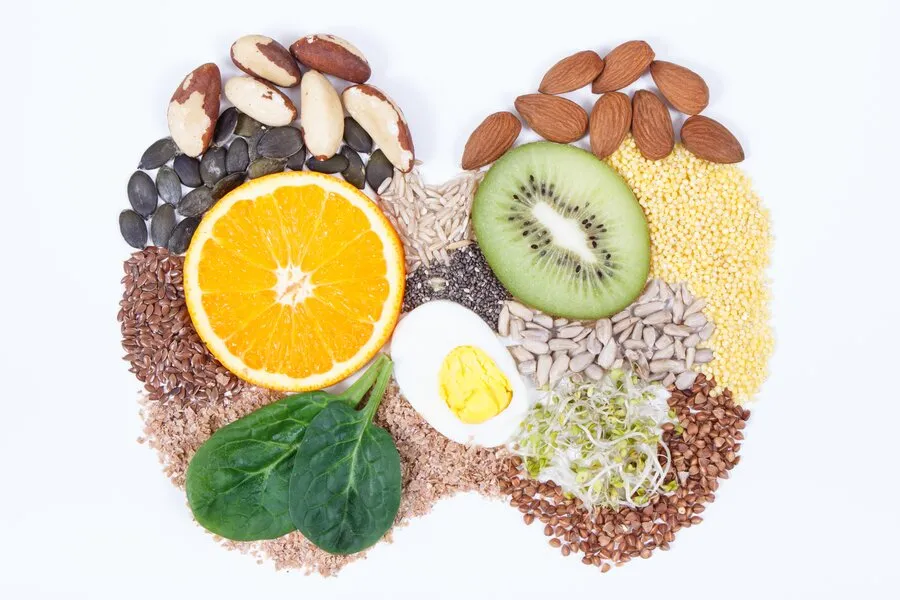Thyroid imbalances

Your thyroid is a small, butterfly-shaped gland in the front of your neck. It makes hormones that control the way the body uses energy. These hormones affect nearly every organ in your body and control many of your body’s most important functions. For example, they affect your breathing, heart rate, weight, digestion, and moods.
Hypothyroidism
When the thyroid gland receives a signal called thyroid-stimulating hormone (TSH), it releases thyroid hormones into the bloodstream. This signal is sent from the pituitary gland, a small gland found at the base of your brain, when thyroid hormone levels are low. In hypothyroidism, the thyroid gland doesn’t release sufficient thyroid hormones, even when there is plenty of TSH. Chronic autoimmune thyroiditis, also known as Hashimoto’s thyroiditis.
Foods you can eat
- Non-starchy vegetables: greens, artichokes, zucchini, asparagus, carrots, peppers, spinach, or mushrooms
- Fruits: berries, apples, peaches, pears, grapes, citrus fruits, pineapple, or bananas.
- Starchy vegetables: sweet potatoes, potatoes, peas, or butternut squash.
- Fish, eggs, meat, and poultry: fish and shellfish, eggs, turkey, or chicken.
- Healthy fats: olive oil, avocados, avocado oil, coconut oil, unsweetened coconut, or full-fat yogurt.
- Gluten-free grains: brown rice, rolled oats, quinoa, or brown rice pasta.
- Seeds, nuts, and nut butters: almonds, cashews, macadamia nuts, pumpkin seeds, or natural peanut butter.
- Beans and lentils: chickpeas, kidney beans, or lentils.
- Dairy and nondairy substitutes: coconut milk, cashew milk, coconut yogurt, almond milk, unsweetened yogurt, or cheese.
- Spices, herbs, and condiments: spices like paprika, saffron, or turmeric, fresh or dried herbs like basil or rosemary, and condiments like salsa or mustard.
- Beverages: water, unsweetened tea, coffee, or sparkling water.
Hyperthyroidism
Hyperthyroidism happens when there’s too much thyroid hormone in your body. This condition is also called thyrotoxicosis. An overactive or enlarged thyroid gland may produce more thyroid hormone. Graves’ disease is one of the most common forms of hyperthyroidism.
Foods you can eat
- A low-iodine diet is usually prescribed prior to some treatments for hyperthyroidism. For example, you’ll need to follow a low-iodine diet before having radiation therapy to remove excess or damaged thyroid cells. Some foods that are low in iodine are:
- Non-iodized salt
- Decaffeinated coffee or tea (without milk or dairy- or soy-based creamers)
- Egg whites
- Fresh or canned fruit
- Potatoes
- Honey
- Cruciferous vegetables such as:
- Broccoli
- Brussels sprouts
- Kale
- Vitamins and Minerals
- Iron
- Selenium
- Zinc
- Calcium and Vitamin D
Foods you need to avoid
- Excess iodine such as:
- Fish
- Prawns
- Crabs
- Sushi
- Milk products
- Egg yolks
- Gluten
- Soy
- Caffeine
When you have questions, always seek out a health care professional.